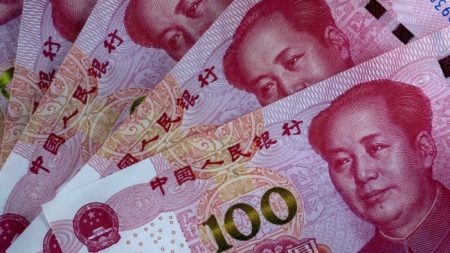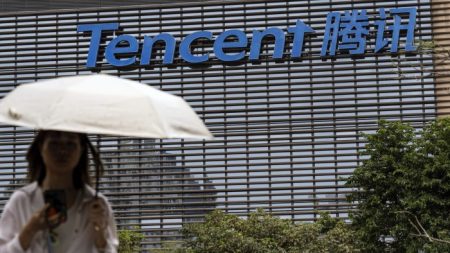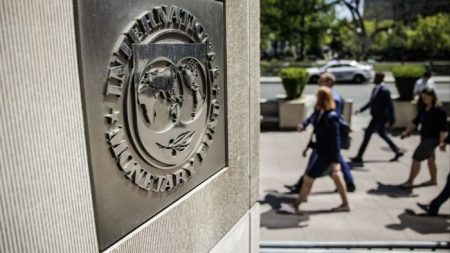US markets have had a great 15 months. The S&P 500 rallied 24% in 2023 and hit 22 new all-time highs in the first quarter of 2023.
But a rising tide does not necessarily lift all boats. Direct-to-consumer brands – household names like HelloFresh, Peloton, Allbirds, Stitch Fix, Warby Parker and Rent the Runway, which cut out traditional retailers, wholesalers and other middlemen – have been falling.
Shares of these companies’ stocks have all dropped by at least 75% from their peak market prices, and many of them are 90% to 95% lower.
Some insiders don’t think they’ll be able to make a comeback.
What’s happening: Economic downturns, real or perceived, tend to shift investor mentality away from greed and toward fear. Investors seek safety.
In 2022, near-constant predictions of recession, rising interest rates and sky-high inflation prompted that change of perspective. Investors shied away from high-growth stocks and retreated into companies with solid fundamentals and, most importantly, lots of profit.
The problem is that none of these direct-to-consumer (DTC) companies have managed to make the transition to profitability themselves.
“They just don’t make money,” said Ben Cogan, co-founder of Agora, a company that acquires small-to-medium direct-to-consumer brands.
Allbirds lost about $153 million last year. Warby Parker lost $63 million. Rent the Runway was down $114 million, and mattress company Purple lost about $121 million.
All of the companies said in their most recent earnings calls that they were making progress financially. None immediately responded to a request for comment from CNN.
But this isn’t a new problem.
Favoring growth: “A lot of these businesses were founded in the mid-2010s, and so they’ve been around for 10 or 15 years,” said Cogan, who also co-founded DTC e-commerce company Hubble Contacts in 2016.
Back in the 2010s, venture funds exploded. Venture capital grew from $60 billion in 2012 to $643 billion in 2021, and funders pumped that money into startups with the goal of growing them as quickly as possible. And they did – which is at least partially why there were a record number of initial public offerings in 2021.
“Businesses spent a tremendous amount of money on marketing but didn’t necessarily have their cost structure in place,” said Cogan. Companies’ marginal costs were high, but they thought that they would figure it out when they got to scale. They built really big teams, and then the market turned and started rewarding profitability, he said.
“A lot of these businesses were really caught flat-footed. They weren’t able to make the transition to profitability, because they weren’t built for profitability play, they were built for growth.”
Going private: But while low stock prices aren’t attractive to investors, they can be to potential buyers.
Blue Apron was acquired and taken private by Wonder Group last November. The group paid $103 million for the the popular meal kit company. That’s about 95% less than Blue Apron’s 2017 IPO valuation of $1.89 billion.
Casper, the mattress company, was taken private in 2021 by private equity firm Durational Capital Management after a tepid year-and-a-half run on the stock market.
Other companies, like SmileDirectClub, which went public in 2019, and Winc, a wine subscription company that went public in 2021, have declared bankruptcy.
“There’s a lot of costs to being public,” said Cogan. “You have to have quarterly calls, you have to have a very beefed-up finance team. And it’s very painful to make the restructurings needed as a public business. I think a lot of these businesses can and will survive, it’s just going to be easier for them to survive as private companies.”
Some people go to Costco for its $1.50 hot dogs, others for its $179 Ozempic prescriptions.
The warehouse retailer is now offering its US members access to prescriptions for GLP-1 weight loss drugs through its low-cost health care partner Sesame.
Costco first partnered with Sesame, a direct-to-consumer health care marketplace that connects medical providers nationwide with consumers, last fall when it began offering its members online health checkups for as low as $29.
But about two months after that announcement, Costco and Sesame noticed that about one in five customer inquiries was about weight-loss help and began working on a new program to address that interest, Sesame co-founder and president Michael Botta told CNN.
“It wasn’t what we initially thought would make sense to offer for Costco members who were coming to Sesame,” he said. “But we realized pretty quickly, just by looking at what people were curious about, that there was a clear unmet need here,” he said.
The fruit of their labor, a renewable three-month program, officially launched on Tuesday and includes a video consultation with a weight loss doctor or specialist, a GLP-1 or weight loss prescription, if appropriate, and ongoing support through unlimited messaging and guidance with a health care provider.
Sesame says it is able to prescribe injectable semaglutides, including Ozempic and Wegovy, as well as oral weight-loss medications. The company advertises that patients could lose 5% of their body weight in just three months, 10% in six months and 15% in a year.
The cost of medication is not included in the $179 three-month plan, and Sesame warned on its website that without insurance, GLP-1s can cost between $950 and $1,600 per month.
Tesla posted its first annual drop in sales since the first year of the pandemic, as increased electric vehicle competition from Chinese and Western automakers ate into demand, reports my colleague Chris Isidore.
CEO Elon Musk’s electric car company reported it built 433,000 vehicles but delivered only 387,000. That’s down from the 484,507 cars it delivered in the final three months of 2023, and it’s also down from the 422,875 vehicle sales in the first quarter of last year.
Tesla has responded to increased competition by cutting prices. Although Tesla is more profitable than traditional automakers, the price cuts have been squeezing the profit margins that helped boost the stock. Investors’ expectations that the company would grow sales in the future had also been supporting Tesla’s lofty stock price, which made it the world’s most valuable automaker.
Shares of Tesla fell 5% Monday and have lost more than a third of their value this year.
Read the full article here













